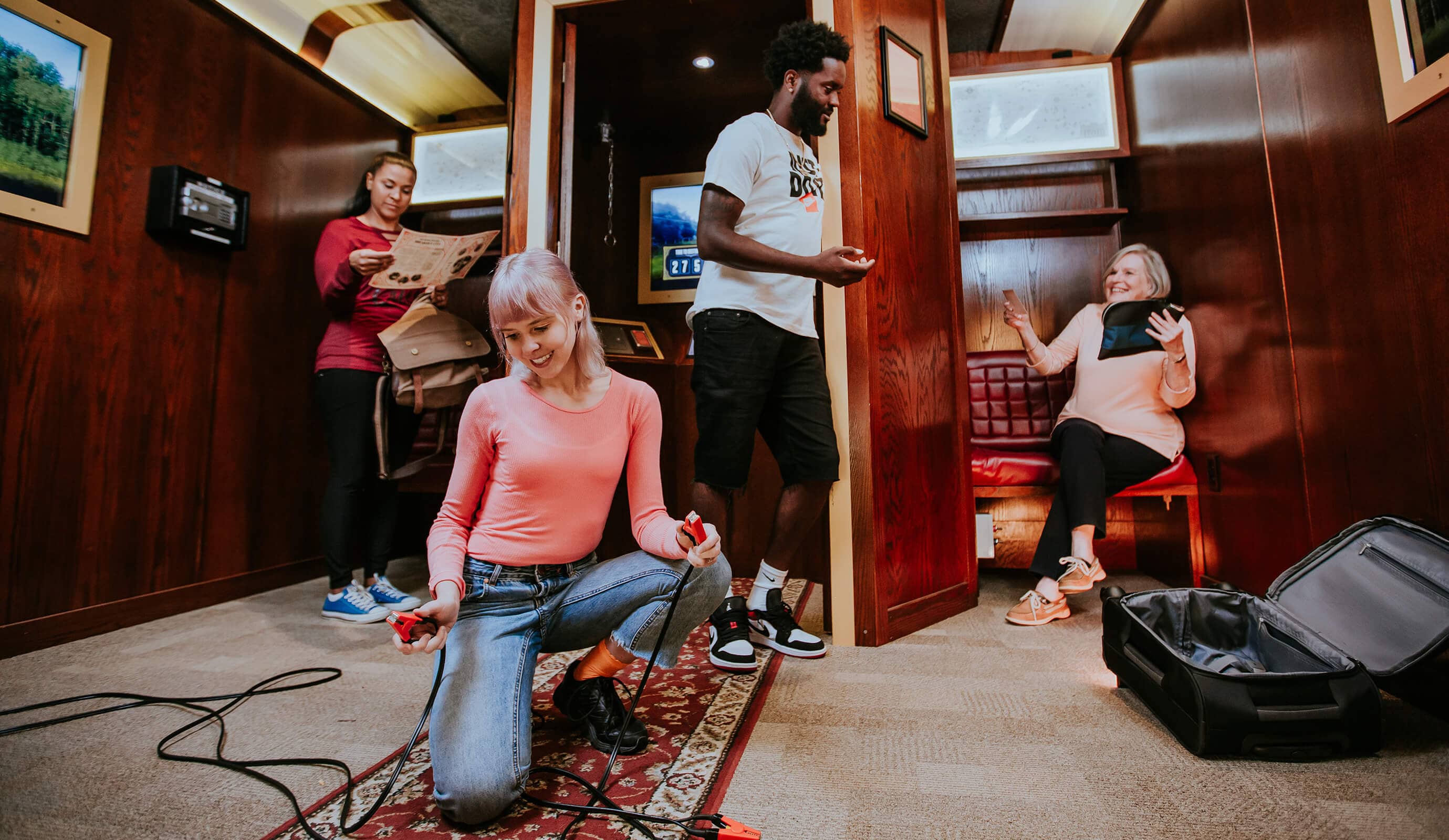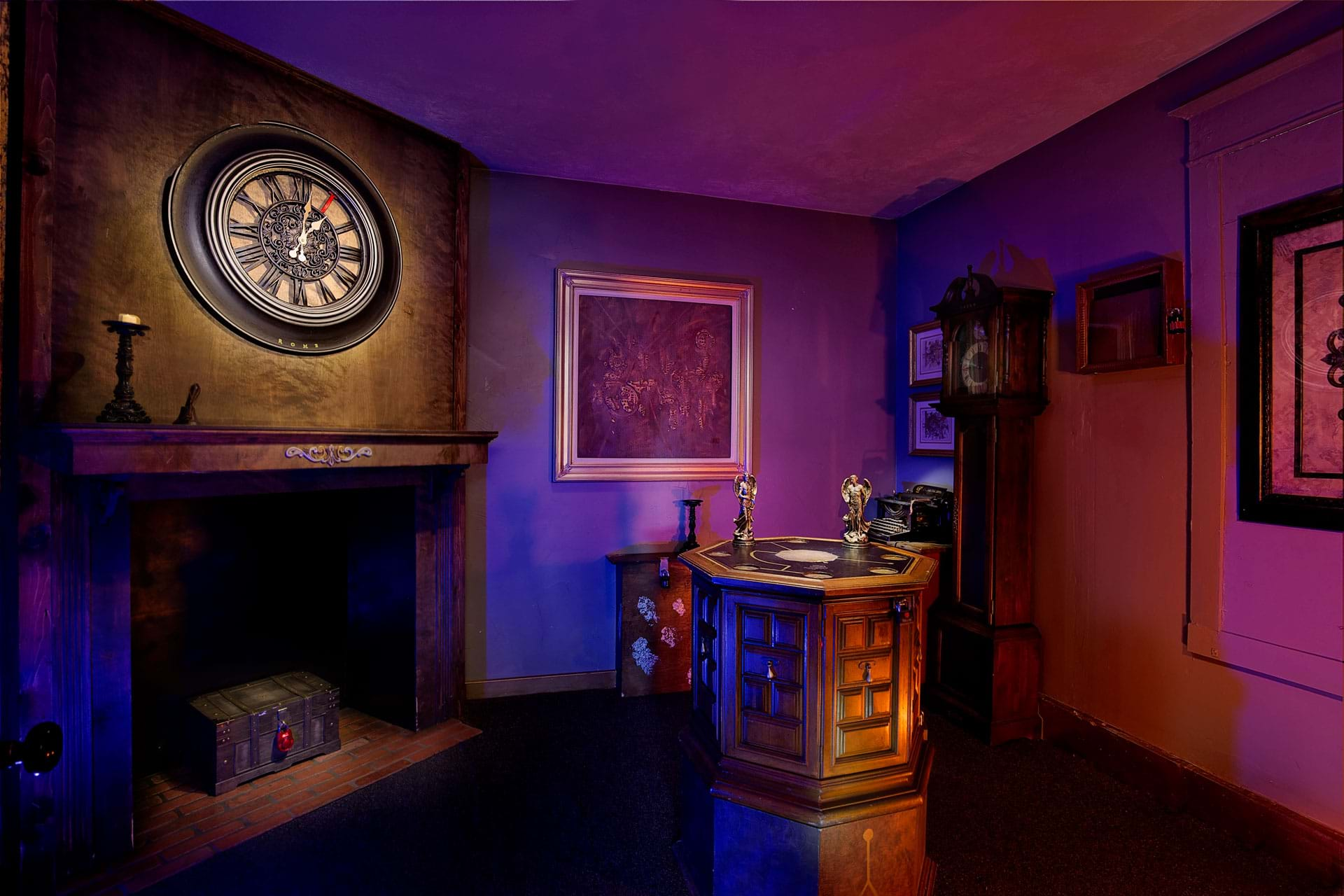Best Escape Room-- Examination Your Skills and Solve the Secret
Best Escape Room-- Examination Your Skills and Solve the Secret
Blog Article
Team Approaches: How to Collaborate Successfully in a Retreat Area
Groups need to actively pay attention to each participant's understandings, appoint duties that straighten with private staminas, and preserve regular check-ins to guarantee focus and prevent redundancy. By fostering an environment that values cohesion and versatility, groups can substantially increase their efficiency and success prices.
Establish Clear Interaction

To help with clear communication, it is crucial to assign a main factor of contact for details circulation. Brief, concentrated updates from each group participant can keep the group notified without overwhelming them with details.

Assign Duties Strategically
While clear communication establishes the foundation for effective team effort, appointing duties tactically makes sure that each employee's toughness are made use of successfully. In a getaway space scenario, the time-sensitive and intricate nature of obstacles requires an efficient strategy to job delegation. By determining and leveraging individual competencies, groups can maximize their problem-solving capabilities and boost total performance.
First, evaluate the one-of-a-kind skills and qualities of each participant. Someone with a keen eye for information might succeed in finding concealed objects, while a sensible thinker might be much better suited to solving problems. It's just as essential to have a leader that can supervise development, manage the timeline, and make definitive calls when necessary. This function usually requires strong organizational and interpersonal abilities.
Second, make sure that functions are flexible and adaptable. As new challenges arise, the group needs to be able to pivot, reapportioning tasks as required. This adaptability helps preserve momentum and prevents bottlenecks that could take place due to rigid duty tasks.
Eventually, a tactical method to role job not just makes the most of the toughness of each team participant yet also promotes a cohesive atmosphere, driving the group in the direction of an effective getaway.
Utilize Diverse Abilities
Identifying and harnessing the diverse skills within your group can dramatically boost your efficiency in a retreat room. Each group participant brings unique staminas to the table, and successfully leveraging these capabilities can speed up analytic and enhance overall efficiency. A group member with solid analytical skills could succeed at decoding complicated codes or patterns, while another with keen observational abilities might promptly identify covert clues that others might overlook.
Encourage team members to articulate their understandings and concepts promptly, guaranteeing that all prospective remedies are taken into consideration. Additionally, assigning jobs that align with each member's strengths can prevent traffic jams and ensure that progress is continual.
Additionally, variety in abilities frequently equates to variety in assuming designs, which is indispensable in an escape room setup. While some challenges might call for logical reasoning and precision, others might take advantage of creative and side thinking. By identifying and leveraging this diversity, groups can deal with a wider series of difficulties better, thereby enhancing their possibilities of an effective escape.
Manage Time Successfully

First, assign initial mins for a fast survey of the area. Identify noticeable puzzles and split tasks based upon staff member' staminas, making certain that no one is still. Set inner time checkpoints to assess progression occasionally; as an example, goal to have half the puzzles addressed by the mid-point of look these up the video game. This technique can help maintain the group concentrated and avoid time from slipping away unnoticed.
Furthermore, stay clear of passage vision. If a problem is taking too long, revolve team participants or go on to one more obstacle, returning later on with fresh perspectives. Interaction is critical-- keep everyone updated on fixed problems and staying jobs to stay clear of repetitive initiatives.
Finally, utilize any kind of hints or clues moderately but strategically - best escape room. Recognizing when to ask for help can save valuable time. By sticking to these time monitoring concepts, groups can considerably boost their chances of an effective and satisfying escape room experience
Debrief and Show
Reflection is a necessary element of group development and enhancement in the context of retreat rooms. When the difficulty is completed, whether successfully or otherwise, it is critical for the team to take part in an organized debriefing session. This process allows employee to evaluate their performance, determine strengths, and determine locations for improvement.
Start the debrief by reviewing what went well. Highlight specific instances of reliable interaction, analytic, and partnership. Acknowledging you can check here these favorable behaviors enhances them and motivates their repeating in future challenges.
Next, attend to the obstacles encountered. Discuss moments of confusion, miscommunication, or inadequate methods. Motivate an open and constructive dialogue where employee can share their perspectives without fear of criticism. This cultivates a culture of constant renovation read review and learning.
Verdict
Finally, effective cooperation in a getaway area is based upon clear interaction, strategic role assignments, the reliable use of diverse skills, and competent time administration. Regular check-ins and organized debriefings are necessary for maintaining emphasis and cultivating continual enhancement. By creating a natural and flexible team atmosphere, the probability of successfully resolving challenges and attaining the objective of getting away the room is substantially boosted. This strategy not just makes certain success however also advertises cumulative development and learning.
Report this page